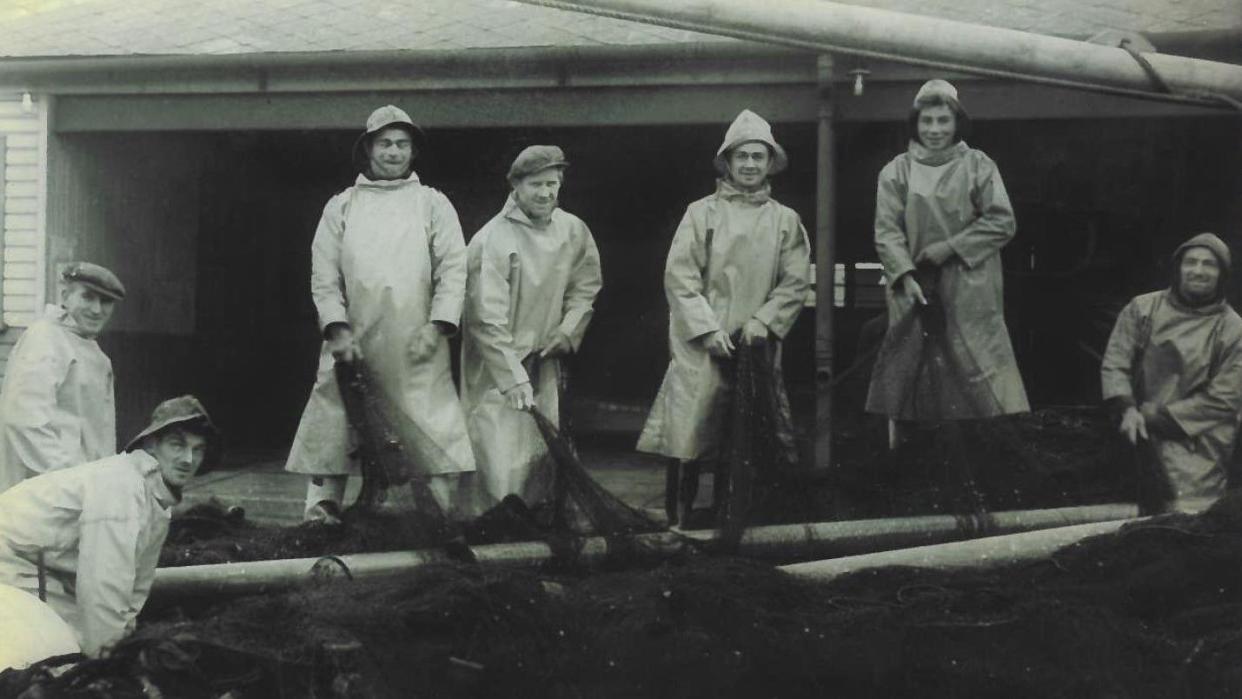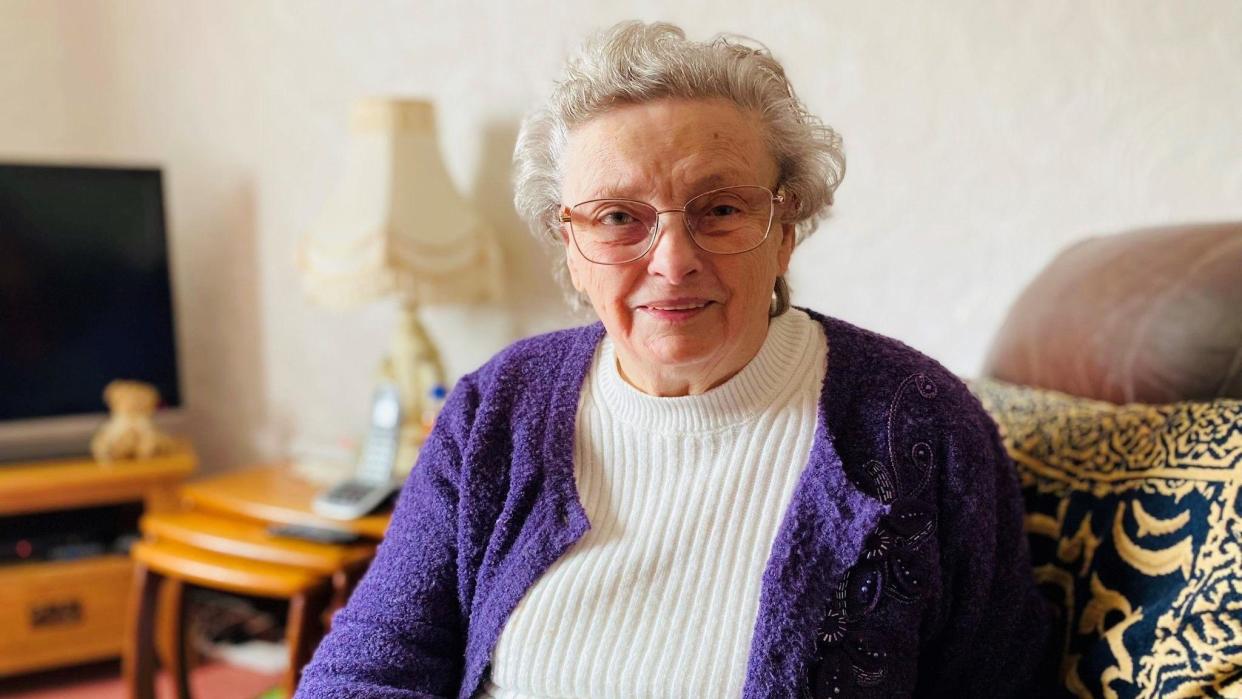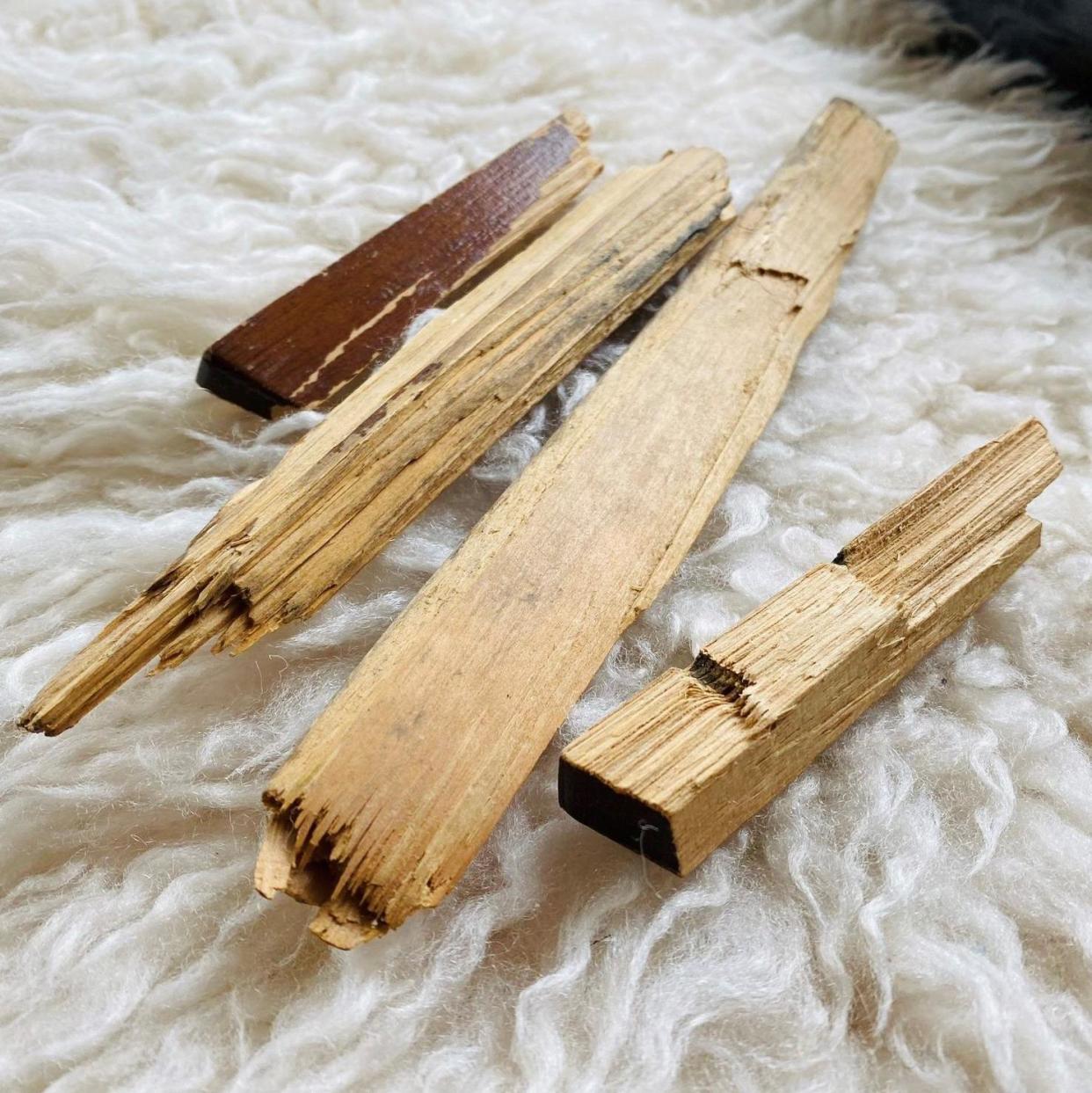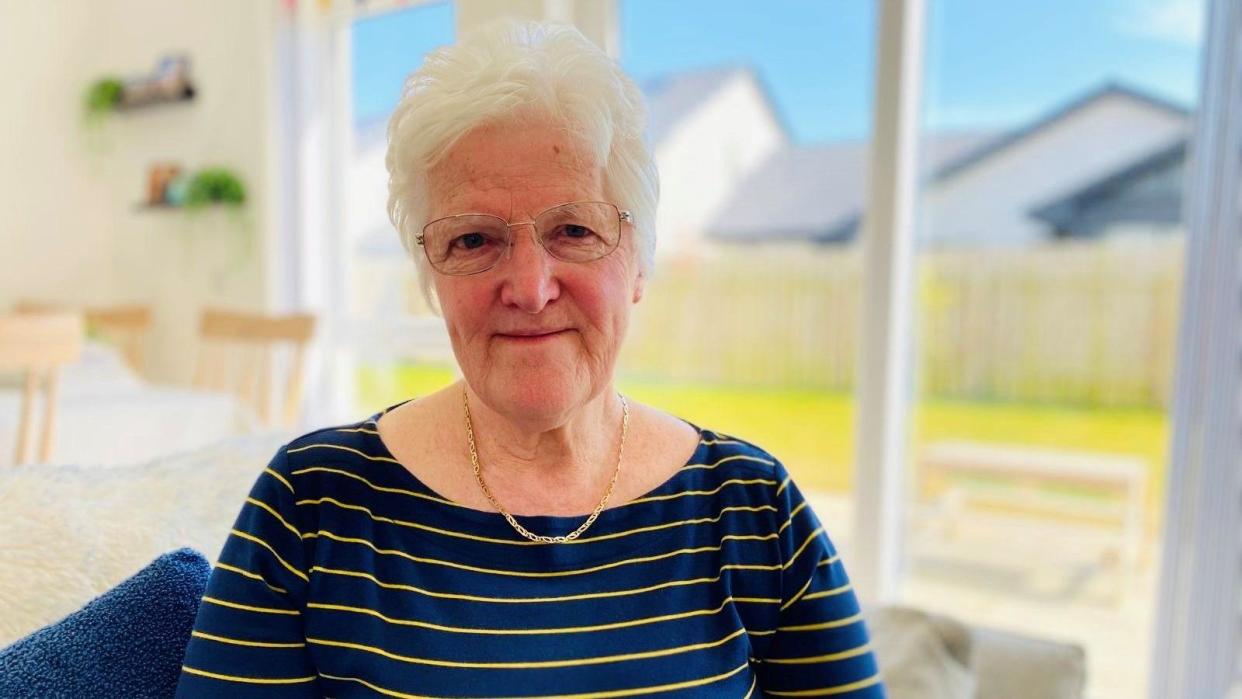The fishing boat tragedy that rocked a community

Nine fishermen left Peterhead on the boat Quiet Waters in March 1954. None of them came home.
The boat sank and their deaths devastated their families and shocked the north-east fishing community.
Among those on board was my grandfather Billy Buchan, who was 29 when he died. My mum was just a baby when she lost him.
On the 70th anniversary of the tragedy she was given flowers, evidence that our community still remembers an event which shook my town and left that little girl without her dad.
Quiet Waters was only a few months old when she left Peterhead, bound for North Sea herring grounds nearly 200 miles (322km) away.
At the helm was skipper Thomas Stephen, 46, along with his brother William Stephen, 44, as mate.
Their sons, Robert, 18, and George, 21, were also on board.
Peter Stephen, 47, George Buchan, 44, James McBeath Mair, 50, and John Murray Coull, 30, completed the crew with my grandfather Billy.
When they failed to return, an SOS was sent out and a major search was launched.
George Buchan's daughter, May Robertson, now 86, was 16 at the time.
"I was a daddy's girl, I just loved my father," she says.
May remembers the moment she learned something was wrong.
"There was a paper shop. I'm standing waiting, and there's a man next to me. He says: 'They're out looking for the boat'.
"I turned around and said to him: 'Excuse me, that's not the Quiet Waters you're speaking about?' He says yes.
"You know this, I don't know how I got across the road yet. I just burst out greetin'."

Local fishermen - friends of those missing - led the extensive search.
It was an anxious wait for those at home, according to May.
"We stood at the window, looking for the boats coming in," she says.
"There was always the thought 'they'll get them'."

When wreckage was pulled from the water, 190 miles (306km) east of Peterhead, it confirmed the community's worst fears.
Among the discoveries was part of the wooden wheelhouse, and a fish box bearing the boat's name.
May says: "They got wreckage. And that was it.
"My mother was never the same."
David Stephen, 79, was just nine when he lost his father, brother, uncle and cousin in the tragedy.
"My brother Tom and my cousin Kenzi and myself were put up to stay with auntie Ruth," he says.
"We were there three weeks. The day that we were taken back to the house, there were people in the close, there were people standing in the stairways.
"When we went in to see where my mum was, there was a room full of fishermen. All tough, hard, fishermen.
"The thing that struck me then, and has lived with me ever since, there wasn't one word being spoken. But there were plenty tears."

"Tom and me sat down, and I can remember Tom saying: 'Never mind mum, we'll work for you'.
"My mother did say, many times, that if Tom and me hadn't been there, she would've just laid down and died.
"It took me years to pluck up the courage and say to her: 'Mother, when did you come to terms with losing father and Robert?'.
"She said: 'David, I got peace in my heart when I stopped asking why'."
A widow at 23
For the wives and families left behind, life was hard.
My grandmother, Nellie, became a widow at 23. My mum, May, was just three months old.
May says: "Times were rough. There was very little money, no insurance that she could turn to that would help her fend for her and me.
"Once she got her strength up, she really just had to go out and work."

"In the immediate aftermath, she was very very ill. Her whole body broke out in a skin disease which weakened her.
"You know she talked very very little about the tragedy. It wasn't something that was every brought up in the home. I think she just wanted to make a life for me and her.
"She was my mum and my dad. She sacrificed so much for me and wanted to give me the best chance possible," she says.
"The one thing that sticks out in my mind is the day I graduated.
"She just stood and looked at me. I just felt she was thinking 'I've managed, I've done my part - now it's up to you'."
We will never know exactly what happened to Quiet Waters, or how the men on board met their fate.
There were no bodies to bury, no gravesides for grieving.
Sadly, other fishing communities have similar tales of loss.
As much as this is a story about tragedy, hardship and unspoken grief, it is also about love, bravery and resilience.
Seventy years on, the men of Quiet Waters are still remembered.
As are the women and children who picked up the pieces in the wake of the tragedy and did what they could to live their shattered lives to the full.
